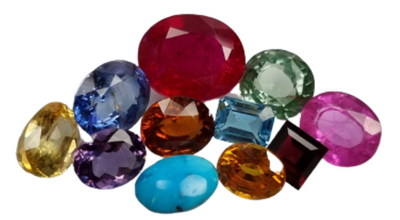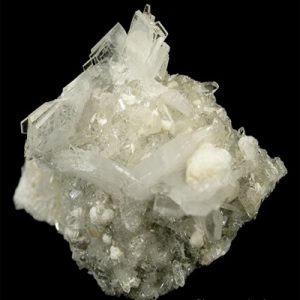Yugawaralite: Gemstones Information
Yugawaralite is a mineral belonging to the zeolite group, named after the town of Yugawara in Japan, where it was first discovered. It is a hydrated calcium-aluminum silicate mineral with the chemical formula CaAl2Si6O16·4H2O. Yugawaralite forms in hydrothermal environments, particularly in the alteration zones of volcanic rocks rich in calcium and aluminum.
Let’s explore the information and potential benefits associated with yugawaralite:
Chemical Composition: Yugawaralite is primarily composed of calcium (Ca), aluminum (Al), silicon (Si), oxygen (O), and water (H2O) molecules arranged in a complex crystal structure. Its chemical formula reflects its composition, consisting of hydrated calcium-aluminum silicate. Yugawaralite typically forms as fibrous or acicular crystals with a white to colorless appearance.
Physical Properties: Yugawaralite crystals often occur as fibrous or needle-like aggregates, resembling delicate threads or fibers. It has a relatively low hardness, with a Mohs hardness of around 3.5 to 4, making it relatively soft compared to other minerals. Yugawaralite is typically translucent to opaque and may exhibit a pearly or vitreous luster. It is commonly found in massive form, but well-defined crystals are also known to occur.
Occurrence: Yugawaralite is commonly found in association with other zeolite minerals, such as natrolite, scolecite, and mesolite, in volcanic rocks and hydrothermal veins. It forms through the alteration of primary minerals by hot, mineral-rich fluids. Significant deposits of yugawaralite have been discovered in various locations around the world, including Japan, Italy, Russia, India, and the United States.
Industrial Applications: Yugawaralite has limited industrial applications due to its rarity and relatively low abundance. However, it is sometimes used as a minor component in ceramics, cement, and construction materials. Yugawaralite-based materials may offer good thermal stability and resistance to high temperatures, making them suitable for use in refractory applications.
Metaphysical Properties: In metaphysical and holistic healing practices, yugawaralite is believed to possess various beneficial properties. It is often associated with promoting feelings of calmness, tranquility, and emotional balance. Yugawaralite is said to have a soothing effect on the mind and body, helping to alleviate stress, anxiety, and negative emotions. Additionally, yugawaralite is believed to enhance spiritual awareness, meditation, and inner reflection.
Collectibility: Yugawaralite specimens are sought after by mineral collectors and enthusiasts for their rarity and unique crystal habits. Fine-quality yugawaralite crystals, particularly those with well-defined fibers and attractive aesthetics, can command premium prices in the mineral market. Collectors often seek out yugawaralite specimens from classic localities or those exhibiting rare crystal habits or associations with other minerals.
Environmental Considerations: Yugawaralite is considered a low-toxicity mineral and does not pose significant environmental hazards. However, like all minerals, proper handling and disposal practices are necessary to minimize any potential environmental impact. Yugawaralite mining activities are typically limited due to its rarity and the relatively small scale of its occurrences.
In summary, yugawaralite is a rare and intriguing mineral with unique properties and potential benefits. Whether appreciated for its geological significance, collectibility, metaphysical properties, or industrial applications, yugawaralite continues to captivate individuals around the world with its beauty, rarity, and versatility.





